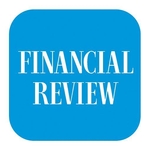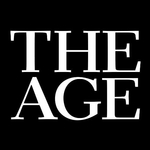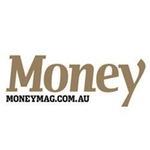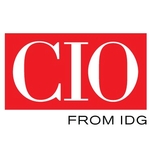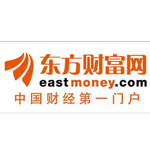OnMarket in the news
Proposed listing rule changes may lock small investors out of sharemarket floats
by John Collett 29 Jul 2016Martin Flood has mostly done very well out of new listings on the Australian sharemarket.
But if changes to the listing rules proposed by the Australian Securities Exchange (ASX) go through, Martin fears he may no longer be able to get access to small floats.
An alternative IPO strategy
by Bob Kohut 25 Jul 2016Despite warnings from market experts to be wary of IPO’s (Initial Public Offerings), many retail investors simply cannot resist the lure of getting in on the ground floor of something big. One factor making it easier for retail investors to throw caution to the wind is the outsized returns from some IPO’s.
5 rules for successful investing
by Tim Eisenhauer 20 Jul 2016When it comes to being a successful investor, what are the key rules that you should stick to through thick and thin?
Tech listings boost IPO Market
by Prashant Mehra 13 Jul 2016Australia's affection for tech IPO's has continued unabated.
More than a third of initial public offers on the ASX in the first half of 2016 have come from the information technology sector, according to investment technology firm OnMarket BookBuilds.
Improving access to IPOs for investors the goal of OnMarket BookBuilds
by Alexandra Cain 29 Jun 2016As the Australian Securities Exchange consults on narrowing retail investor access to floats, one business is pushing for a liberalisation of rules around mum-and-dad shareholder access to new listings on the bourse.
Retail investors to miss out on IPOs
by Jassmyn Goh 24 Jun 2016The Australian Securities Exchange (ASX) should reserve at least 25 per cent of every initial public offering (IPO) to retail investors, OnMarket BookBuilds believes.
Proposed ASX listing rules curtail retail IPO access
by Ben Bucknell 23 Jun 2016If the ASX has its way in reducing the minimum number of investors needed for initial public offerings, this will cement the exclusion of ordinary investors from most IPOs.
HSC High Achiever: Maths
by Fran Molloy 20 Jun 2016Four-unit HSC maths followed by liberal arts study at Yale University in the United States, followed by a masters of business administration (MBA) at the University of Cambridge in Britain doesn't at first glance seem like a straightforward study path.
But it has worked for Alexandra Galin, a former North Sydney Girls' High School student.
Is the ASX shutting out retail investors?
by Mike King 15 Jun 2016The ASX is proposing to make some changes that could see retail investors locked out of some investing in more companies listing on the exchange in an IPO. The Australian Shareholders’ Association (ASA) is up in arms over it, as is online IPO site OnMarket BookBuilds, with both believing that the changes are negative for retail investors.
Petition to oppose ASX's proposed listing rules says private investors will be shut out
by Sally Patten 15 Jun 2016OnMarket BookBuilds, a stock market listings and placements platform, has launched a petition to oppose the proposed changes to the ASX admissions rules on the grounds that private investors, including self-managed superannuation fund trustees, will be shut out of capital raisings.
4 types of stocks you should hold
by Tim Eisenhauer 10 Jun 2016So you're thinking of starting a portfolio, evaluating how your holdings have performed, or considering some portfolio spring cleaning?
Here are four types of stocks that every savvy investor should hold to help give a balanced equity portfolio.
IPOs outperform so far in 2016
by Trevor Chappell 08 Jun 2016The debutante companies that started trading on the Australian share market this year have by far outperformed their already-listed peers.
Floating your boats with new listing pickings
by Tim Boreham 08 Jun 2016Whether the IPO is great or small, investors should do themselves a favour and check out the next float because they’re proving an (almost) sure-fire way of making money.
IPOs still the way to go
by Tim Boreham 07 Jun 2016Despite concerns about the quality some of the offerings at the smaller end of the market, this year’s initial public offerings (IPOs) have sizzled in after-market trading with an average return of 25 per cent.
Hey Kogan, where's retail investors' access to your IPO?
by Mike King 07 Jun 2016Online retailer Kogan is planning to list on the ASX, but it’s unlikely that retail investors will be able to participate – even if they want to.
Blockchain starts a revolution
by Tim Eisenhauer 07 Jun 2016Blockchain is the new buzzword. As enigmatic as it sounds, it is a reasonably simple concept: a blockchain is just another way to record transactions. It is a public database of all transactions made among all the parties participating in a particular network – in other words, a public ledger.
Online markets create new breed of alternative investments
by John Collett 01 Jun 2016With share prices struggling and cash at the bank paying next-to-nothing, how are investors to get a decent return?
IPOs getting bigger, but small caps still outperform, OnMarket BookBuilds says
by Vanessa Desloires 16 May 2016Initial public offerings on the ASX are getting bigger and small cap floats and private equity exits are the best performers, according to data compiled by OnMarket BookBuilds.
Avoiding bad investment habits with SMSFs
by Tim Eisenhauer 16 May 2016SMSFs are continuing to shy away from high-growth assets and preferring the safety of cash, often with negative consequences for their fund.
Could fintech revolution take down a major bank?
16 May 2016Fintech companies are moving in on traditional financial services providers as their products and services gain popularity, grabbing market share and talent while forcing down costs. And they aren't shy about predicting the demise of traditional banks.
Fintech specialists say 'NextGen banking' may replace Big Four
by Bonnie Gardiner 11 May 2016Banks of the future will be technology companies with a banking licence, and traditional finance options may give way to more digitally advanced methods and platforms, say fintech specialists.
The real story with private equity floats
by Tim Eisenhauer 09 May 2016Following the Dick Smith debacle, many investors might be wondering whether they will be comprehensively done over if they buy shares in a float of a company by private equity.
ASX shares bucked the trend turned up into a powerful financial technology highlights
by Eastern Wealth Network 05 May 2016In the first quarter of this year, IPO shares have had a strong performance in Australia, the ASX listed 13 companies on an average return of 1.3%, outperforming the broader market. In 2015 ASX listed 93 companies on average with up to 23% return, outperforming the benchmark by 3 percent points, expect a similar trend will continue into 2016
Australian IPOs outperform broader market
by Tim Eisenhauer 03 May 2016The Australian initial public offerings (IPOs) market is delivering a robust performance, with returns from companies listing on the Australian Securities Exchange (ASX) striking 1.3 per cent over the first quarter.
Artificial Intelligence, Algo-Banking, Blockchain, Cryptocurrencies and Robo-Advice Form Growth of Australian Fintech Market
by Frost & Sullivan 03 May 2016Fintech is a disrupting force and a decentralising movement in the financial services sector. Fintech's apply information technologies and modern internet protocols for data exchange, and deliver financial services using data storage, data analysis algorithms, or personal telecommunication devices. Digital ecosystems are fundamental to the success of both Fintech and traditional banks.




